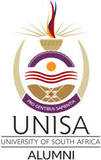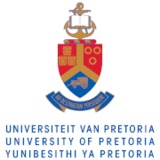
Antarctic Legacy Archive
Ross seal ecology, behaviour and physiology in a changing environment
- ALSA Home
- →
- Documents
- →
- SANAP Research Institutions, Projects, Infrastructures
- →
- View Item
JavaScript is disabled for your browser. Some features of this site may not work without it.
| dc.contributor.author | McIntyre, T. | |
| dc.date.accessioned | 2021-03-03T16:46:50Z | |
| dc.date.available | 2021-03-03T16:46:50Z | |
| dc.date.created | 2021-2023 | |
| dc.date.issued | 2021-2023 | |
| dc.identifier.uri | http://hdl.handle.net/123456789/28129 | |
| dc.description.abstract | Antarctica and the surrounding Southern Ocean marine ecosystems are changing rapidly due to anthropogenic climate change. Seals, whales and seabirds, i.e. top-predators, are abundant and conspicuous components of the Southern Ocean ecosystem. As far-ranging, numerous consumers, they connect food webs and are influenced by the distribution of their prey. Labelled as sentinels of change, they are well-studied in comparison to other Antarctic and Southern Ocean taxa. Ross seals (Ommatophoca rossii), the least-studied of all the Antarctic pinnipeds, are unique in their foraging behaviour. Unlike other true Antarctic marine predators, they traverse the Southern Ocean four times annually in a narrow longitudinal band. In summer, they forage pelagically while in winter they spend the majority of their time within the Marginal Ice Zone (MIZ). This unique behaviour raises several questions and opportunities to study the impacts of climate change on them and their ocean habitat. This project aims to create an integrative view of Ross seals focusing on foraging ecology, physiology, and interactions with the MIZ. Satellite tracking data and remote sensing will be used to create end-of-century forecast habitat models. Fine-scale dive recorders will measure how Ross seals adapt their behaviour within the water column in response to environmental change. Novel physiological data collected on their aerobic dive limit will determine whether this species is operating at, or close to, its maximum physiological capacity and therefore less capable of compensating for natural or anthropogenic changes in the environment. A time-series created for compound-specific isotope analyses of amino acids using whisker segments will be able discern how specialised these predators are in their diet in relation to changes in a shifting isotopic baseline. Combining these three facets will determine the level of behavioural plasticity in Ross seals and their ability to cope with a changing environment | en_ZA |
| dc.description.sponsorship | Sponsored by the Department of Science and Innovation(DSI) through the National Research Foundation (South Africa) | en_ZA |
| dc.description.statementofresponsibility | Antarctic Legacy of South Africa | en_ZA |
| dc.format | en_ZA | |
| dc.format | Image | en_ZA |
| dc.language | English | en_ZA |
| dc.language.iso | English | en_ZA |
| dc.publisher | South African National Antarctic Programme (SANAP) NRF Projects | en_ZA |
| dc.relation | SANAP Call - 2021-2023 | en_ZA |
| dc.rights | Copyright | en_ZA |
| dc.rights | Copyright | en_ZA |
| dc.subject | Research | en_ZA |
| dc.subject | Science | en_ZA |
| dc.subject | Infrastructure | en_ZA |
| dc.subject | Research Projects | en_ZA |
| dc.subject | Antarctica | en_ZA |
| dc.subject | Sub-Antarctic | en_ZA |
| dc.subject | Living Systems | en_ZA |
| dc.subject | Zoology | en_ZA |
| dc.subject | Marine biology | en_ZA |
| dc.subject | Behavioural ecology | en_ZA |
| dc.subject | Marine mammals - Ecology | en_ZA |
| dc.subject | Animal movement ecology | en_ZA |
| dc.subject | Data science | en_ZA |
| dc.subject | Animal behaviour | en_ZA |
| dc.subject | Ecology and environmental science | en_ZA |
| dc.subject | Climate change - Adaptation | en_ZA |
| dc.title | Ross seal ecology, behaviour and physiology in a changing environment | en_ZA |
| dc.type | Document | en_ZA |
| dc.type | Research Project | en_ZA |
| dc.rights.holder | Copyright is with the Institution | en_ZA |
| dc.rights.holder | McIntyre, T. | en_ZA |
| iso19115.mdconstraints.uselimitation | This item and the content of this website are subject to copyright protection. Reproduction of the content, or any part of it, other than for research, academic or non-commercial use is prohibited without prior consent from the copyright holder. | en_ZA |
| iso19115.mdformat.name | en_ZA | |
| iso19115.mdformat.name | Logo | en_ZA |
| iso19115.mdidentification.deliverypoint | Antarctic Legacy of South Africa, Faculty of Science, Private Bag X1, Matieland. Stellenbosch. | en_ZA |
| iso19115.mdidentification.deliverypoint | Department of Life and Consumer Sciences | en_ZA |
| iso19115.mdidentification.electronicmailaddress | antarcticlegacy of South Africa | en_ZA |
| iso19115.mdidentification.electronicmailaddress | mcintt@unisa.ac.za | en_ZA |
| iso19115.mdidentification.organizationname | University of South Africa | en_ZA |
| iso19115.mdidentification.organizationname | UNISA | en_ZA |
| iso19115.mdidentification.supplementalinformation | https://www.unisa.ac.za/sites/corporate/default/Colleges/Agriculture-&-Environmental-Sciences/Schools,-departments,-centres-&-units/School-of-Agriculture-and-Life-Sciences/Department-of-Life-and-Consumer-Sciences/Staff-members/Dr-T-McIntyre | en_ZA |
Files in this item
This item appears in the following Collection(s)
-
SANAP Research Institutions, Projects, Infrastructures [359]
SANAP Research




